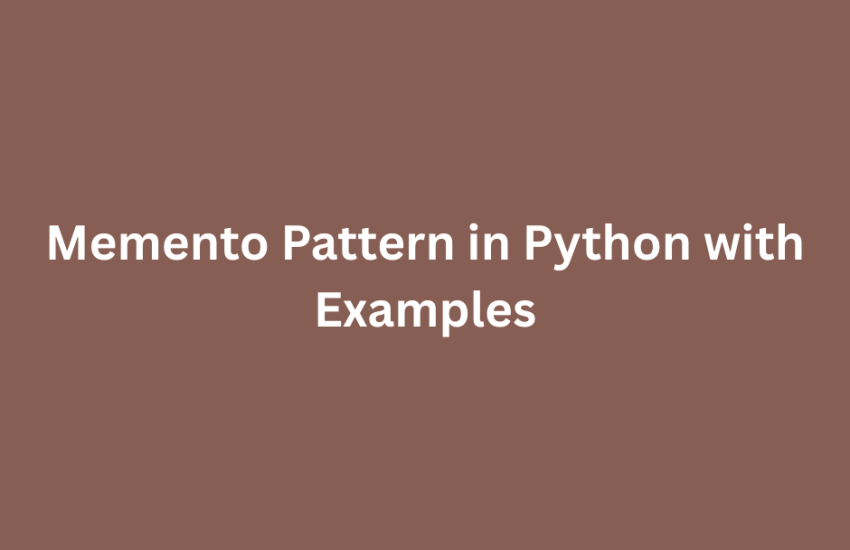The Memento pattern in Python is a behavioral design pattern that captures and restores an object’s state without violating its encapsulation. This pattern is particularly useful when implementing undo mechanisms or managing the history of changes in an application.
Let’s delve into the essence of the Memento pattern with a Python example:
class Originator:
def __init__(self):
self._state = None
def set_state(self, state):
print("Setting state to:", state)
self._state = state
def create_memento(self):
return Memento(self._state)
def restore_from_memento(self, memento):
self._state = memento.get_state()
print("State restored to:", self._state)
class Memento:
def __init__(self, state):
self._state = state
def get_state(self):
return self._state
class Caretaker:
def __init__(self):
self._mementos = []
def add_memento(self, memento):
self._mementos.append(memento)
def get_memento(self, index):
return self._mementos[index]
# Example usage
originator = Originator()
caretaker = Caretaker()
originator.set_state("State 1")
caretaker.add_memento(originator.create_memento())
originator.set_state("State 2")
caretaker.add_memento(originator.create_memento())
originator.set_state("State 3")
caretaker.add_memento(originator.create_memento())
# Restore to the previous state
originator.restore_from_memento(caretaker.get_memento(1)) In this example, we have three main components:
- Originator: This is the object whose current state must be stored. It has methods to set its state, create a memento (snapshot) of its current state, and restore its state from a memento.
- Memento: This is a simple object that holds the state of the originator. It has a method to retrieve the stored state.
- Caretaker: This object holds the mementos and is responsible for their safekeeping. It provides methods to add mementos and retrieve specific mementos.
Understanding and implementing the Memento pattern can significantly improve the robustness and flexibility of your Python applications, especially when dealing with state management and undo functionalities.




